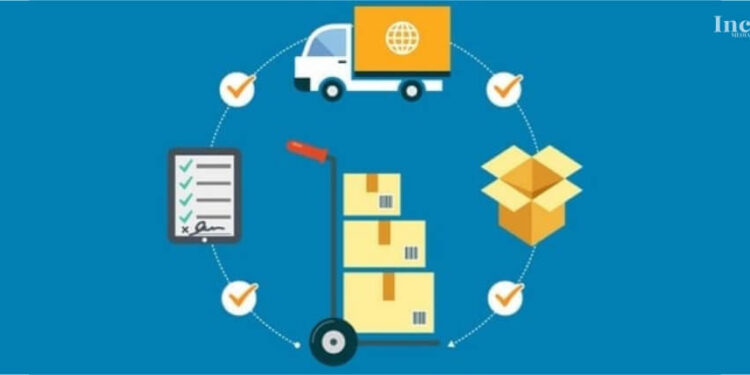Retailing benefits consumers because retailers execute marketing functions that enable customers to access various items and services. Retailing also contributes to the development of the location, time, and possession utilities. Additionally, the service provided by a merchant contributes to the enhancement of a product’s image. Retailing has a sizeable economic influence. It requires significant annual revenue and employment.
The retail industry is concerned with the sale of items to consumers. While meeting client needs, a retailer performs the following functions:
- Convenience for the Customer:
Perhaps the most critical duty of the retail community is to deliver ready-to-consumer goods to the consumer’s doorstep. Retailing benefits consumers because merchants execute marketing functions that enable customers to access various items and services. Retailing also contributes to the development of the location, time, and possession utilities. Additionally, the service provided by a merchant contributes to the enhancement of a product’s image. Retailers maintain inventory and ensure that products and services are available when the customer requires them. Convenience stores are open 24 hours a day, seven days a week, and provide customers greater flexibility and variety.
- Product and service accessibility:
Consumers do not value products and services until they are purchased and used by them. Retailers obtain items and benefits from a variety of sources. Arrange them in a single location according to consumer needs, hence facilitating customer access.
- The practicality of Size
Retailers dismantle bulk products and serve them in the amounts and sizes specified by the consumer. Shampoo, for example, is offered in little sachets. The retailer assists consumers by supplying them with the items, services, and advice they require in the packaging and amounts they desire.
- Associated Services:
A thriving retail industry benefits consumers by efficiently supplying a diverse choice of products and services. Retailing can take place in brick-and-mortar stores or online. Retailing encompasses ancillary services such as delivery. Retailing also contributes to improving living conditions by enabling consumers to acquire a variety of goods, services, and utilities.
- Supply Chain Management:
Retailers are a component of a more extensive system known as the supply chain. A retailer purchases commodities or items in bulk from manufacturers or directly from wholesalers and then resells them to the consumer in smaller amounts for a profit. Retailers contribute to the sorting process by acquiring a diverse range of goods and services from various sources and making them available for sale. The retailer’s strategy determines the breadth and depth of the assortment. Retailers are critical in bridging the gap between manufacturers and eventual consumers.
- Value Chain Analysis:
When consumers make purchases, businesses must place further orders to restock their inventory. In turn, factories are responsible for manufacturing the commodities sold by retailers. The factories then acquire additional raw materials to make other goods. This is how much of the economy is driven by consumer spending.
- Information & Research:
The merchant contributes valuable information to the supply chain. He teaches and informs customers about the characteristics and benefits of products. They educate consumers through advertising, displays, and signs, as well as through sales employees. Other outlets and members receive assistance with marketing research. Retailing is, in some ways, the final stage in the consumer product marketing channel. He also offers manufacturers and distributors feedback on consumer preferences, which assists them in planning production and supply.
- Obtaining Financing:
The retailing industry mobilizes people’s investment and savings, as a small shop may be established with little capital. They store stuff, mark prices on it, put items on the sale floor, and handle products in other ways; they typically pay suppliers before selling items to end customers. They complete transactions by using appropriate locations and timings, credit policies, and other services, such as delivery. They impact customers’ lifestyles and assist individuals in developing their identity in a social situation.
- Economic Growth:
Retailing has a significant impact on a country’s economic development. Retail has been ingrained in our daily life. Consumer spending on retail items accounts for a substantial portion of the global economy, and the retail business employs a sizable workforce. The nations that have made the most economical and social progress typically have a thriving retail sector. Retail is one of the world’s most important industries, contributing significantly to the country’s economic development. Sustaining a healthy retail industry accelerates economic growth.
- Employment opportunities:
There are several individuals and businesses involved in the manufacture, distribution, and retail of commodities. Retailing is the second-largest revenue producer and employer globally, behind agriculture. It benefits both the impoverished and the unskilled, as well as the educated and talented. As a significant source of employment, Retailing offers a diverse range of career prospects, including store management, merchandising, and business ownership.
- Social Accountability:
Additionally, successful retailers understand that consumers desire to witness gains in the overall level of consumption and social cohesion over time. Retailers must increase their perceived community value by serving as a focal point and implementing effective public relations and advertising initiatives, including sponsorships. This promotes corporate social responsibility by funding general welfare programs with a percentage of the purchase price of the company’s products.















 The Inc Media is one of the most renowned global Online Business Magazines, that carries news stories about entrepreneurship, small business management, and business. Being a global business magazine, we carve for influential stories and try to take them globally to uplift the business standards and educate the people about new innovations in the business world...
The Inc Media is one of the most renowned global Online Business Magazines, that carries news stories about entrepreneurship, small business management, and business. Being a global business magazine, we carve for influential stories and try to take them globally to uplift the business standards and educate the people about new innovations in the business world...